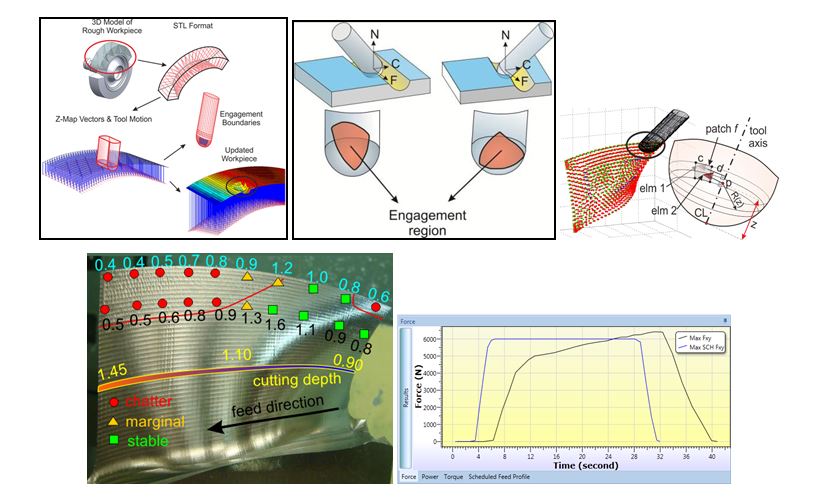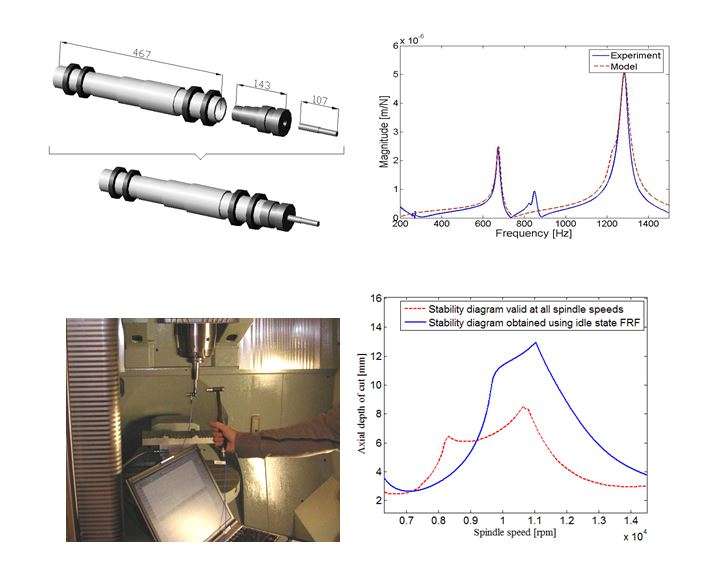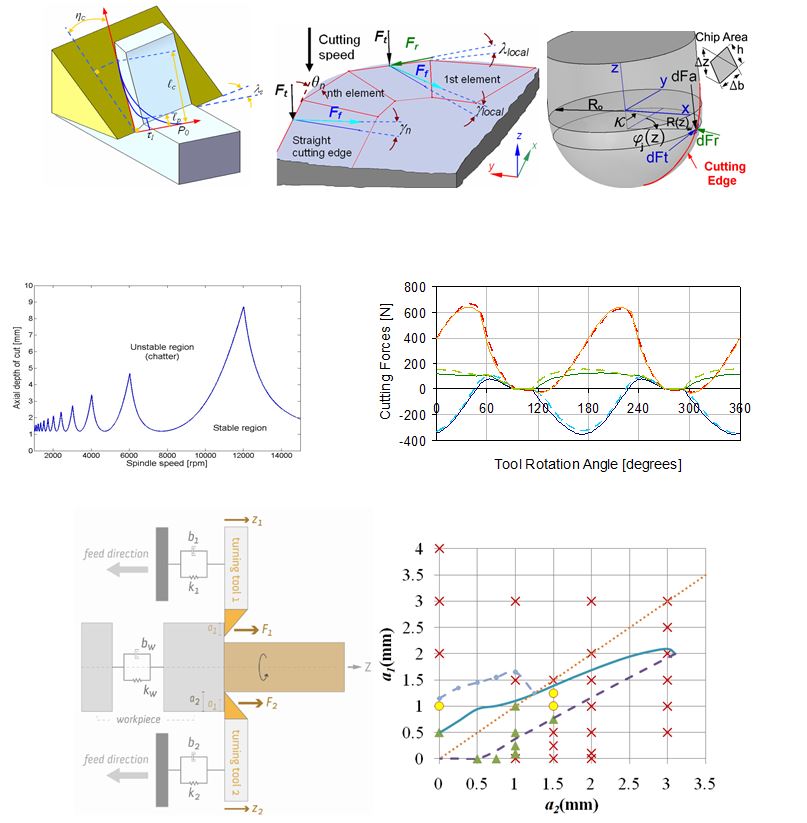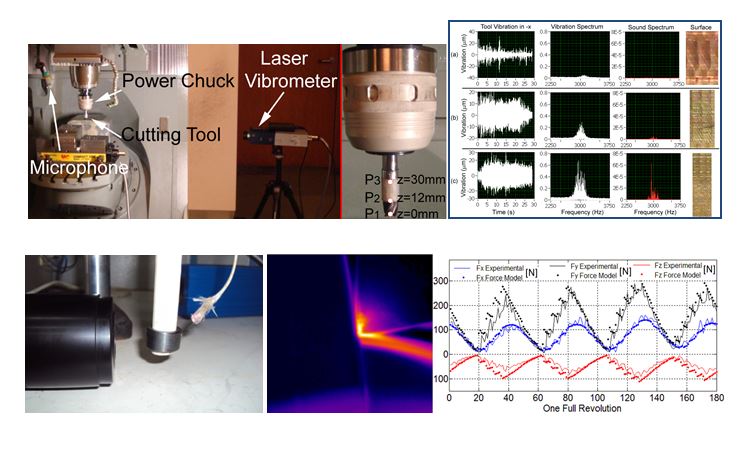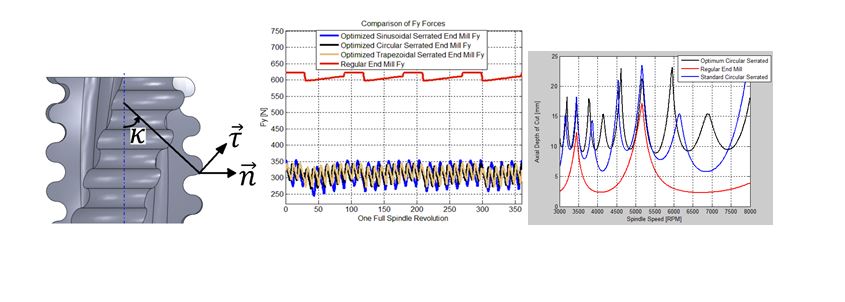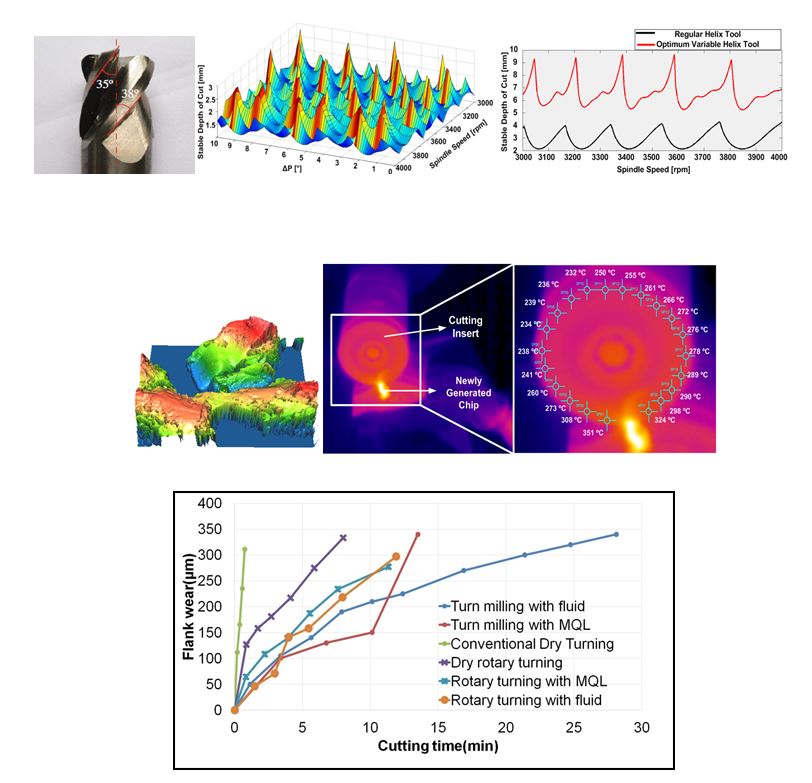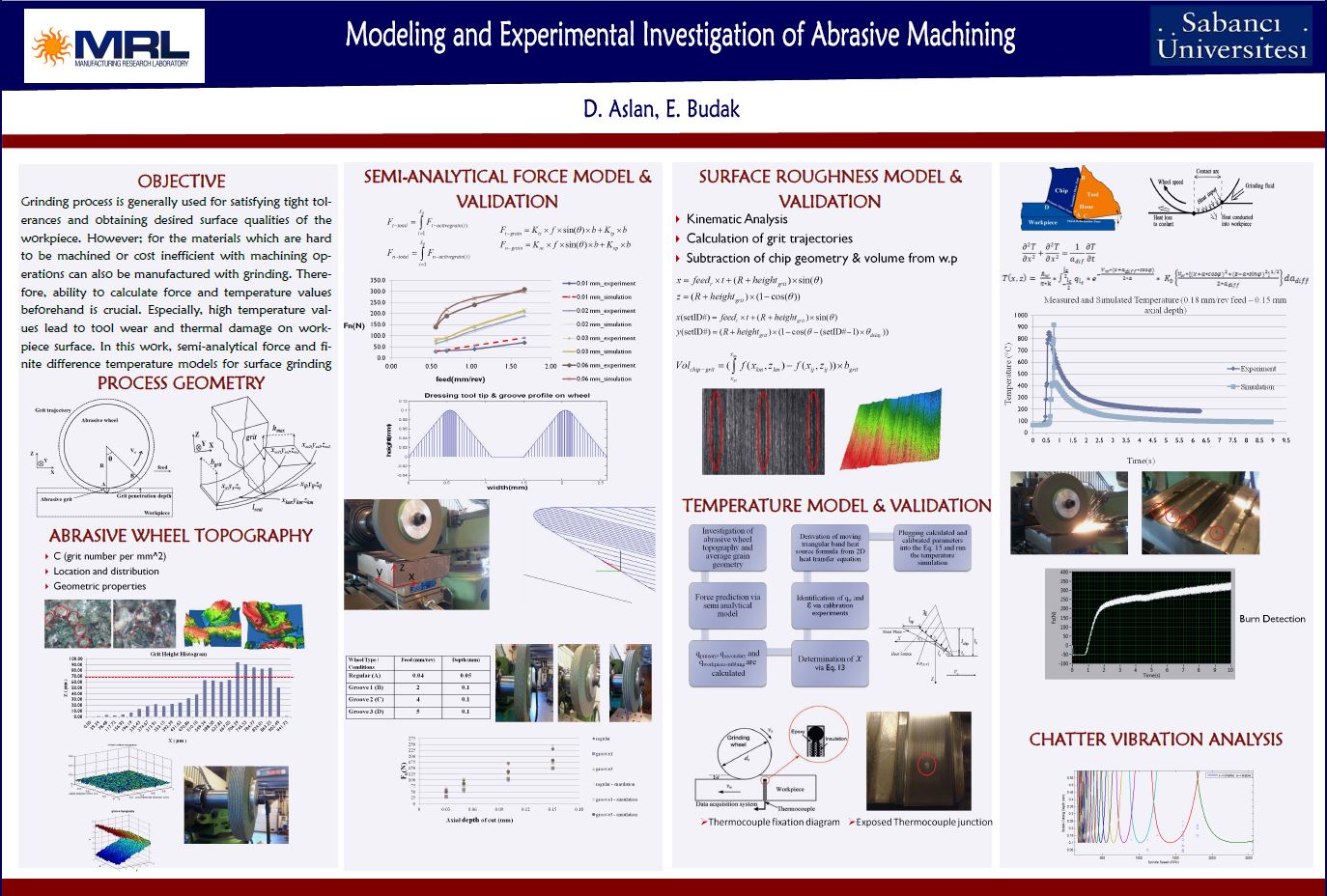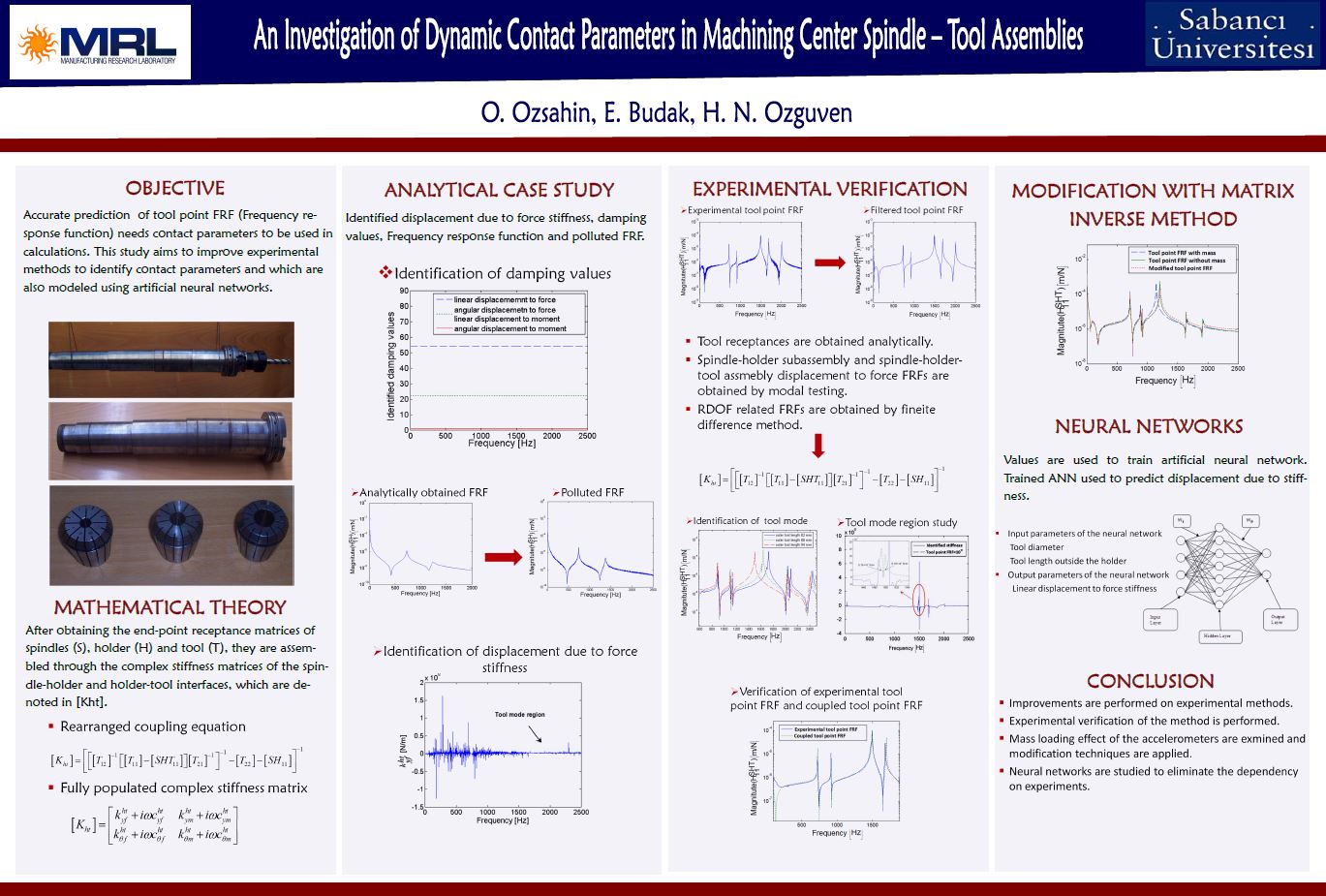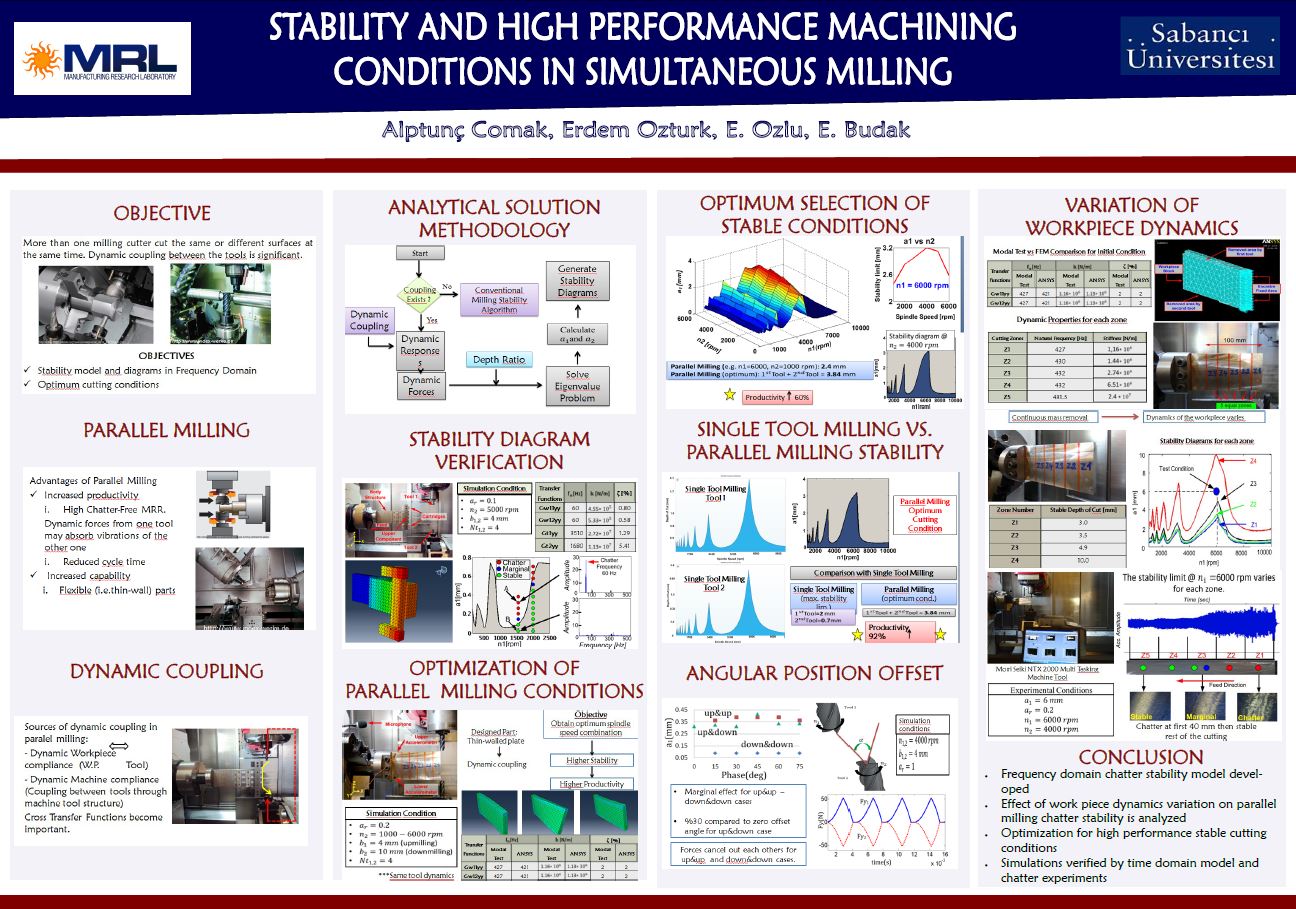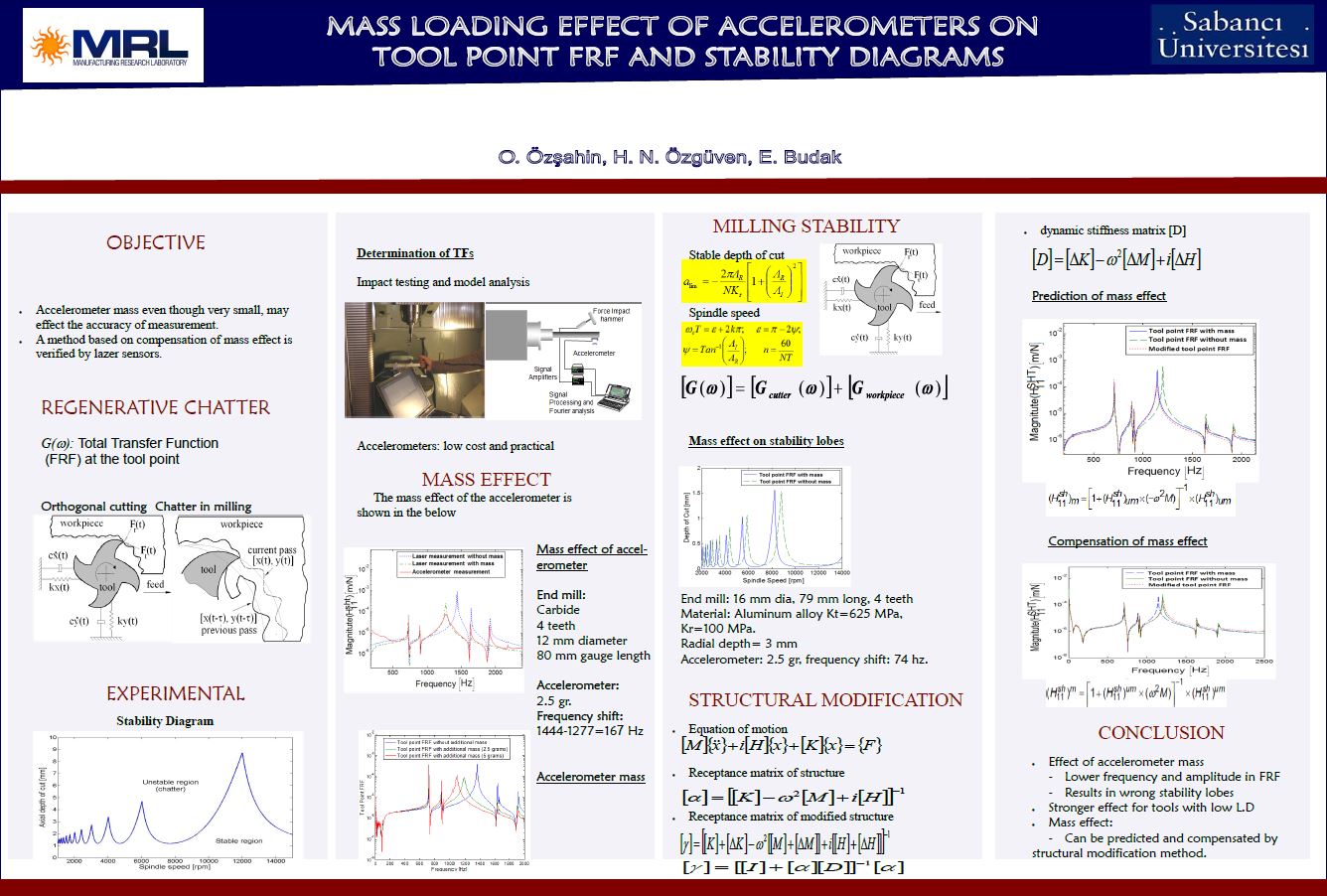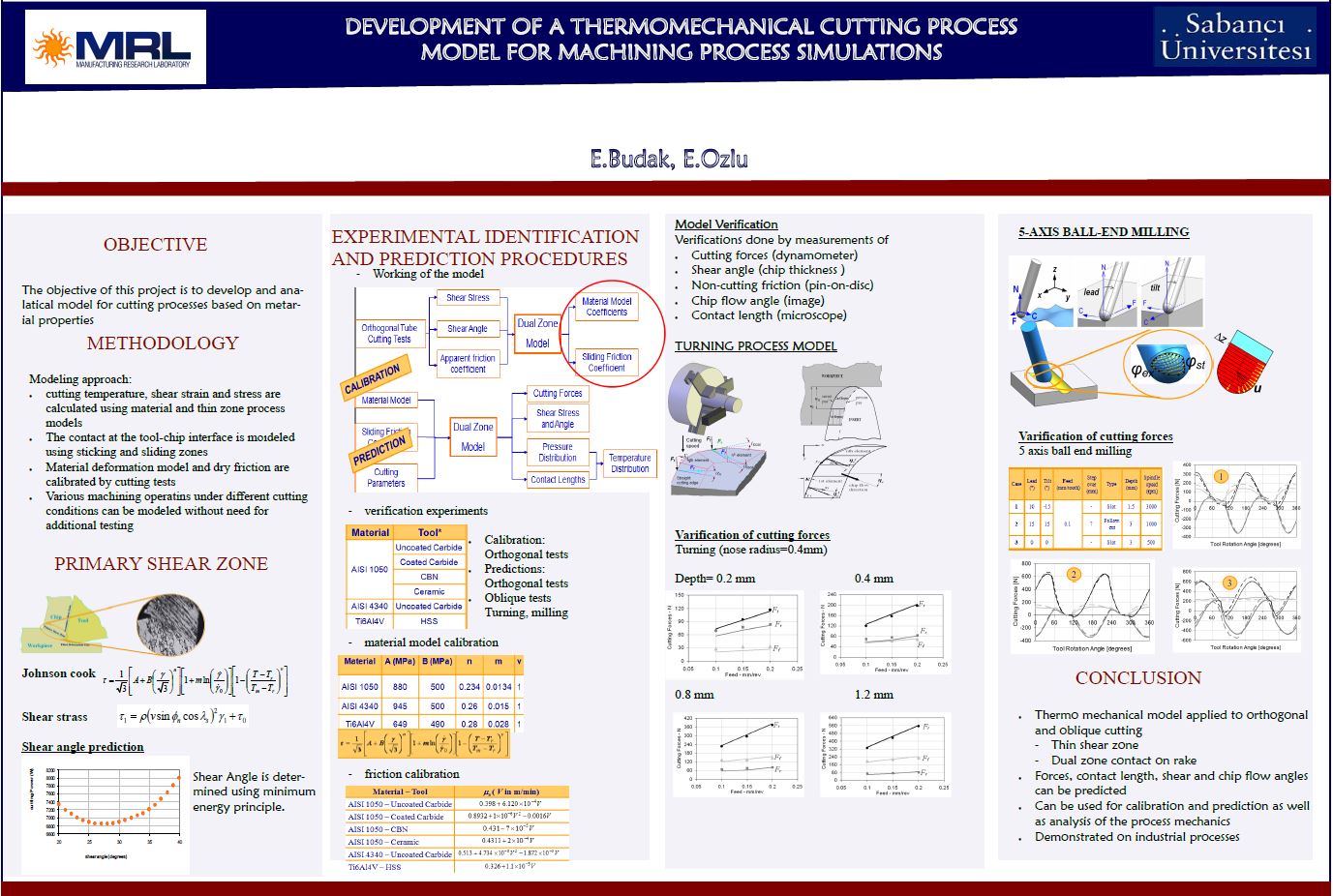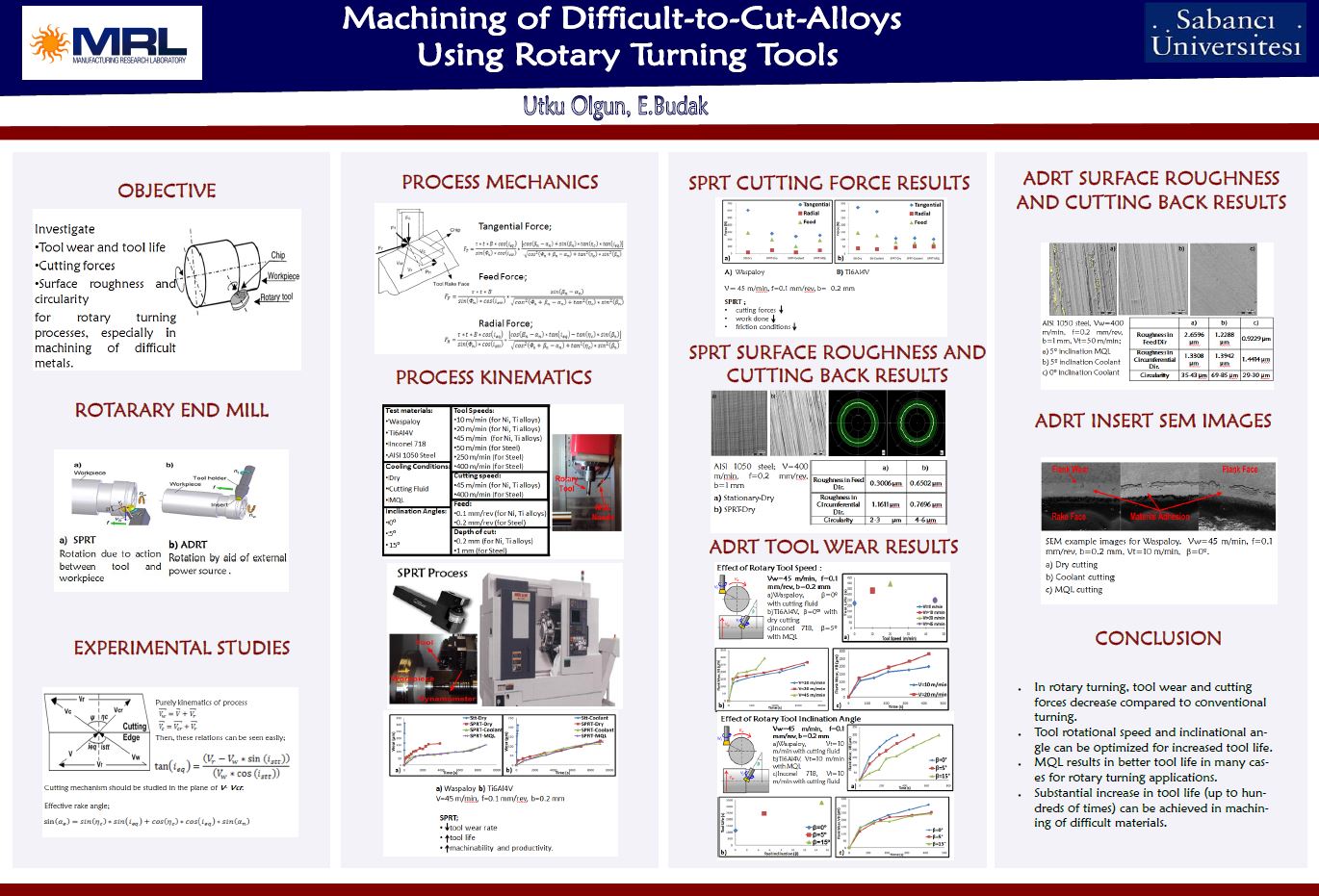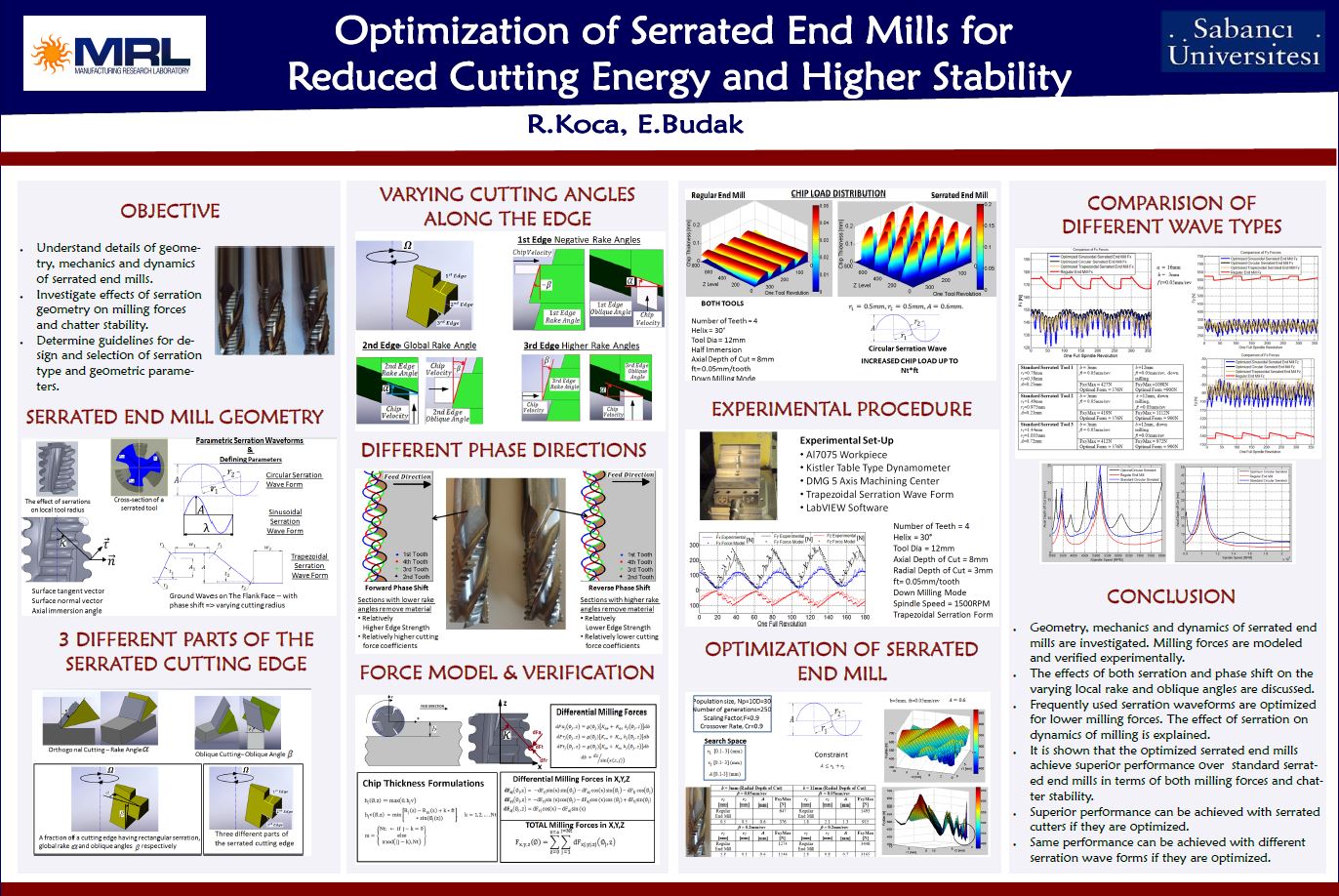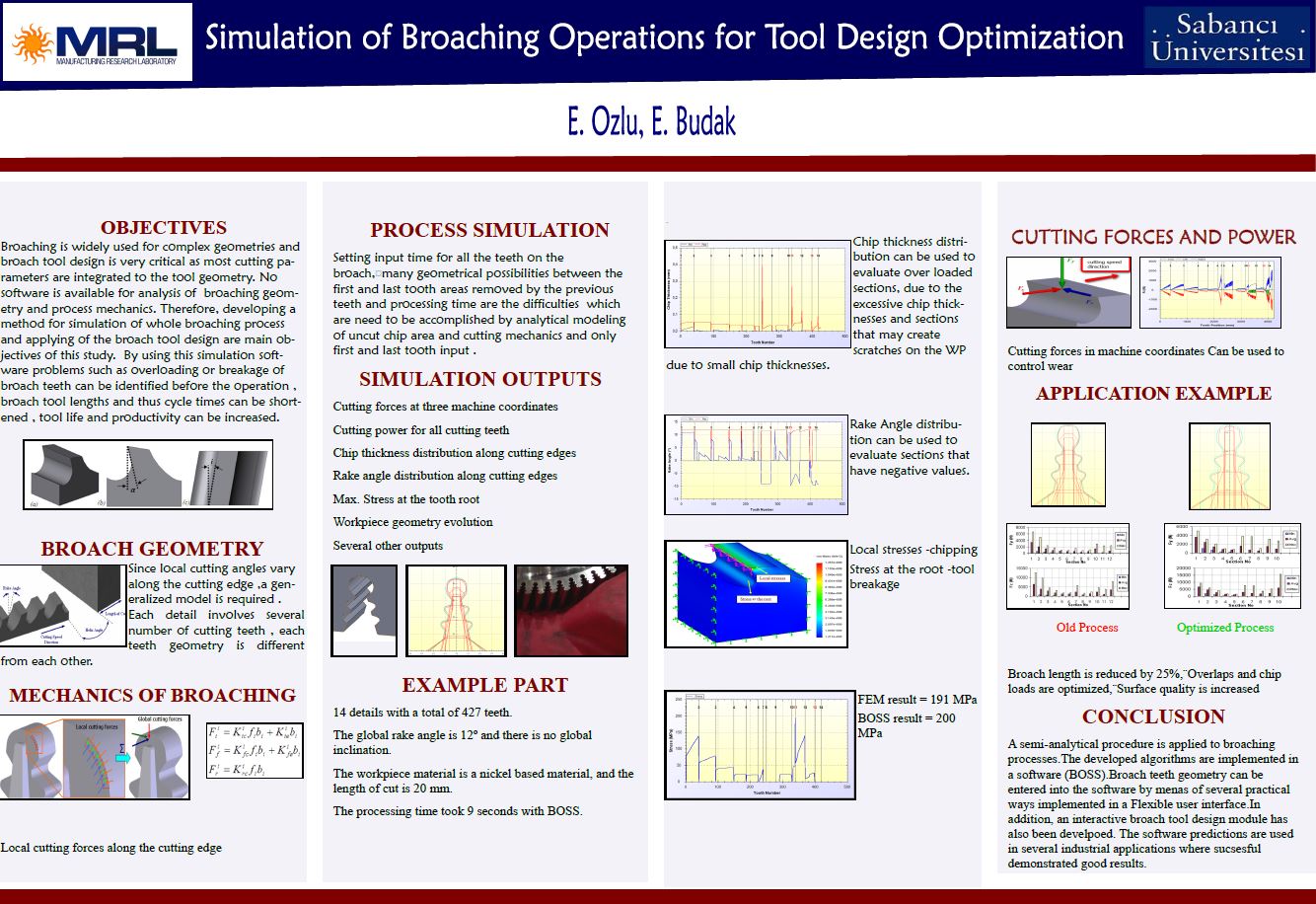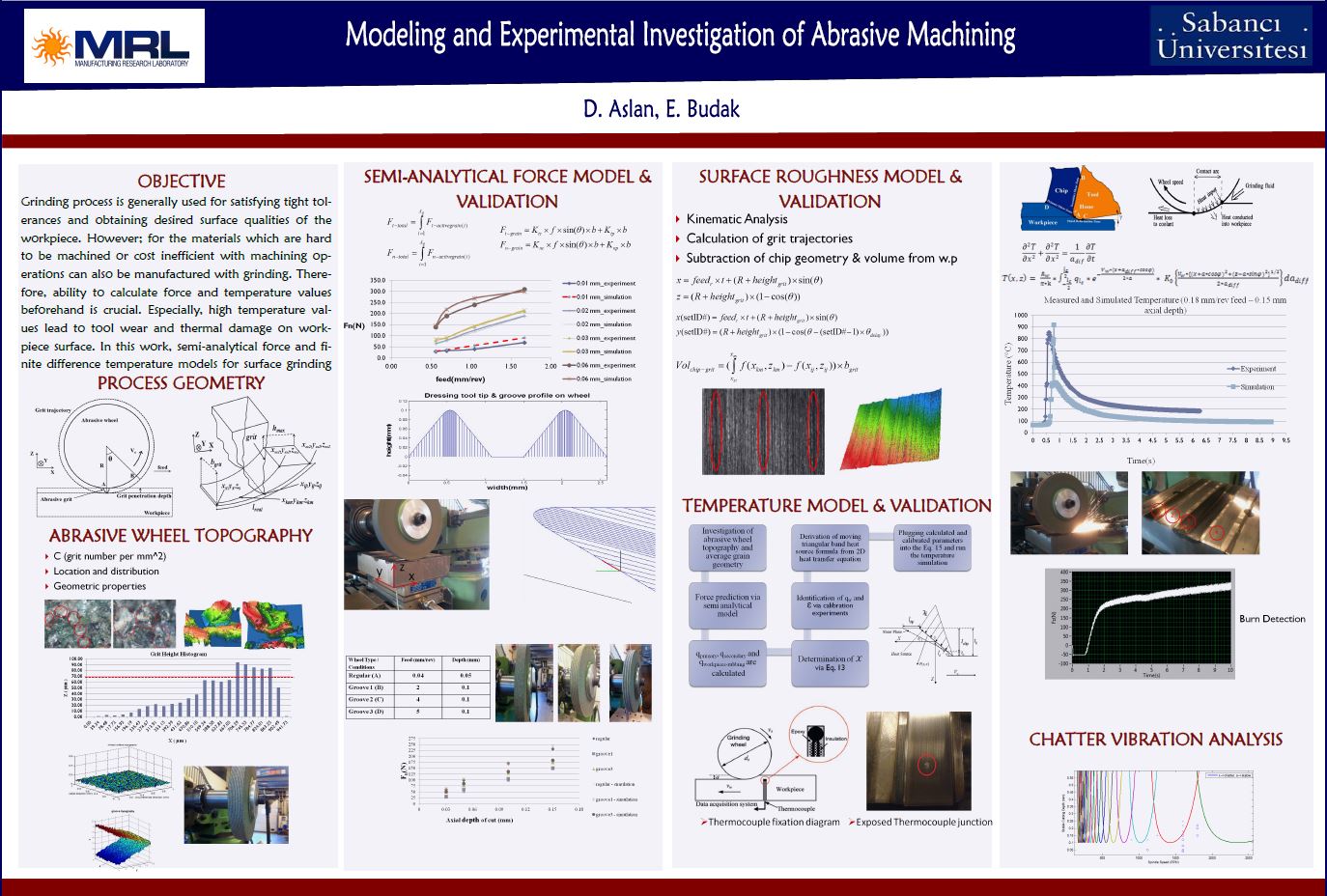Research Areas
Research Areas
MRL mainly focuses on machining process and machine tool research. Highlights from these research activities are listed below:
- Machining Process Modeling: One of the main research areas of MRL is to develop process models for various machining operations. These models are used to understand process better, develop simulation programs, optimize of parameters etc. These activities have been done for various milling operations such as flat end-milling, ball-end milling and multi-axis milling, turning with radiused tools, broaching of complex geometries, turn-milling, grinding, parallel turning and milling etc. These process models are integrated with graphical computation methods to identify tool-material contact for simulations of full machining operations and cycles. The developed methods and computer programs have been applied to various industrial operations and parts such as bladed-discs, impellers, turbine discs, dies and molds, blades etc.
- Machine Tools: Machine tool analysis and measurements; modeling and measurement of machine tool dynamics; contact parameters between machine tool components, spindle dynamics, machine tool dynamics under operational conditions, modal testing of machine tools and their components, performance testing; design optimization, multi-tasking machine tools etc.
- Mechanics and Dynamics of Cutting Processes: Investigating fundamentals of cutting process mechanics and dynamics, plastic/elastic deformations and chip formation, friction in metal cutting, ploughing and edge/flank contact, heat in metal cutting and cutting temperatures, machining dynamics, chatter stability, analytical, multi-frequency and numerical models for investigation and solution of chatter, process damping in cutting, modeling of part dynamics for chatter stability, dynamics and stability of simultaneous machining operations, mechanics and dynamics of abrasive processes, micro milling mechanics and dynamics, surface generation and errors etc.
- Process Monitoring of Sensor Assisted Machining: Measurement of cutting forces, vibrations, temperatures and tool wear; monitoring of surface quality; adaptive machining; real-time chatter suppression; in-process optimization of cutting process using sensory information, tool wear monitoring etc.
- Cutting Tool Analysis: Process model and simulation based cutting tool analysis; tool performance testing; investigating effects of tool geometry on cutting process forces, stability, temperature etc.; tool life tests, effects of tool geometry on surface quality, edge hone effects on cutting process, special tools, variable pitch and helix tool design for chatter suppression, modeling and testing of serrated tools, optimization of cutting edge and serration geometry etc.
Current Researches
- Multi-tasking Machining Operations:
-Parallel Turning
-Parallel Milling
-Rotary Turning
-Turn-Milling
- 5-axis Milling (Blisk Machining)
- Super Abrasive Machining (SAM)
- Micro Milling
– Process Mechanics & Dynamics
- Modeling of Grinding Process
- Cutting Dynamics & Stability
-Stability of Multi-Tasking Operations
-Optimal Milling Tool Design
- Machinability of Nickel Alloys
- Process Simulation
-Multi-axis Milling
-Multi-axis Turning
-Multi-axis Broaching
- Machine Tool Design Optimization
